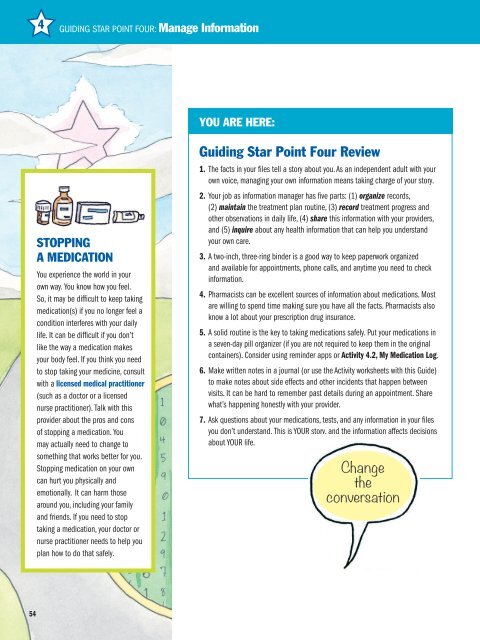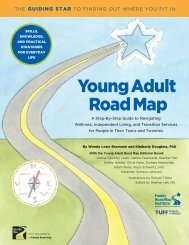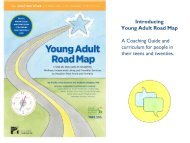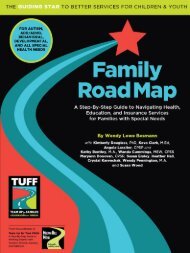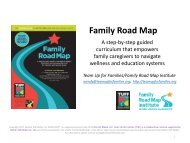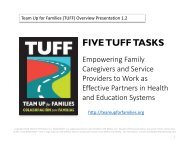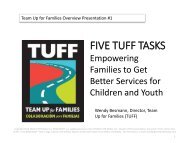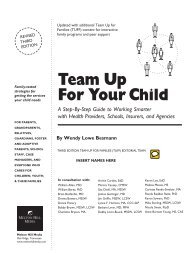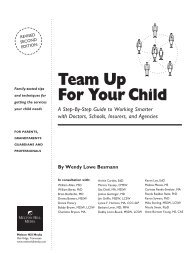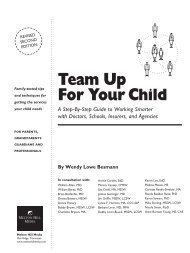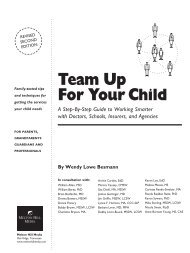Look Inside Young Adult Road Map
You also want an ePaper? Increase the reach of your titles
YUMPU automatically turns print PDFs into web optimized ePapers that Google loves.
4<br />
Guiding Star Point four: Manage Information<br />
You are here:<br />
Stopping<br />
a Medication<br />
You experience the world in your<br />
own way. You know how you feel.<br />
So, it may be difficult to keep taking<br />
medication(s) if you no longer feel a<br />
condition interferes with your daily<br />
life. It can be difficult if you don’t<br />
like the way a medication makes<br />
your body feel. If you think you need<br />
to stop taking your medicine, consult<br />
with a licensed medical practitioner<br />
(such as a doctor or a licensed<br />
nurse practitioner). Talk with this<br />
provider about the pros and cons<br />
of stopping a medication. You<br />
may actually need to change to<br />
something that works better for you.<br />
Stopping medication on your own<br />
can hurt you physically and<br />
emotionally. It can harm those<br />
around you, including your family<br />
and friends. If you need to stop<br />
taking a medication, your doctor or<br />
nurse practitioner needs to help you<br />
plan how to do that safely.<br />
Guiding Star Point Four Review<br />
1. The facts in your files tell a story about you. As an independent adult with your<br />
own voice, managing your own information means taking charge of your story.<br />
2. Your job as information manager has five parts: (1) organize records,<br />
(2) maintain the treatment plan routine, (3) record treatment progress and<br />
other observations in daily life, (4) share this information with your providers,<br />
and (5) inquire about any health information that can help you understand<br />
your own care.<br />
3. A two-inch, three-ring binder is a good way to keep paperwork organized<br />
and available for appointments, phone calls, and anytime you need to check<br />
information.<br />
4. Pharmacists can be excellent sources of information about medications. Most<br />
are willing to spend time making sure you have all the facts. Pharmacists also<br />
know a lot about your prescription drug insurance.<br />
5. A solid routine is the key to taking medications safely. Put your medications in<br />
a seven-day pill organizer (if you are not required to keep them in the original<br />
containers). Consider using reminder apps or Activity 4.2, My Medication Log.<br />
6. Make written notes in a journal (or use the Activity worksheets with this Guide)<br />
to make notes about side effects and other incidents that happen between<br />
visits. It can be hard to remember past details during an appointment. Share<br />
what’s happening honestly with your provider.<br />
7. Ask questions about your medications, tests, and any information in your files<br />
you don’t understand. This is YOUR story, and the information affects decisions<br />
about YOUR life.<br />
Change<br />
the<br />
conversation<br />
54


